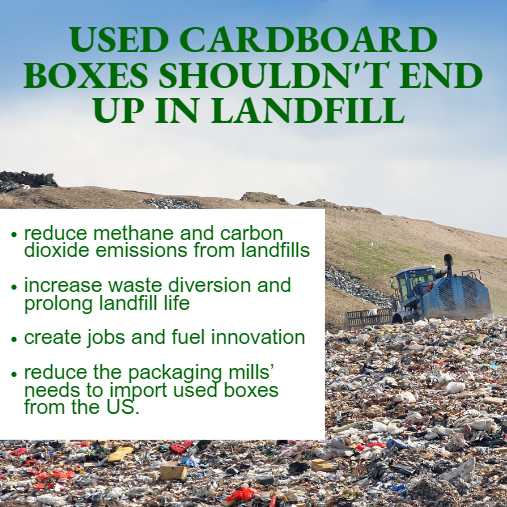PPEC supports banning old corrugated boxes from landfills as it would reduce methane and ensure that paper packaging is diverted and recycled.

When organic waste – such as food, yard waste, and paper products – is disposed in landfills, it produces methane, a greenhouse gas (GHG). As part of the Government of Canada’s commitment to reduce emissions by 40 to 45% below 2005 levels by 2030, and achieve net-zero emissions by 2050, they are looking at ways to reduce methane emissions from municipal solid waste landfills. Banning corrugated boxes is one action that can be taken.
Banning corrugated boxes from landfill would:
- reduce methane and carbon dioxide emissions from landfills;
- increase waste diversion;
- prolong landfill life; and
- reduce packaging mills’ needs to import used boxes from other jurisdictions.
A landfill disposal ban is a tool that stipulates that certain materials are not accepted for disposal. Bans are often used when there is a recycling program in place for that material. In Canada, Nova Scotia, Prince Edward Island, and Metro Vancouver have banned corrugated cardboard from their jurisdiction’s disposal sites.
Paper packaging mills in Canada rely on using old corrugated cardboard (OCC), and other used paper packaging materials, collected from the back of factories, supermarkets, office buildings, and from residential sources to make new paper packaging.
Recycled paper packaging represents our industry’s feedstock as it is continually collected and recycled through residential and business recycling programs, allowing those materials to be remade into new paper packaging products again and again.
Subscribe to our communications
Sign up to receive PPEC's blog and updates.
